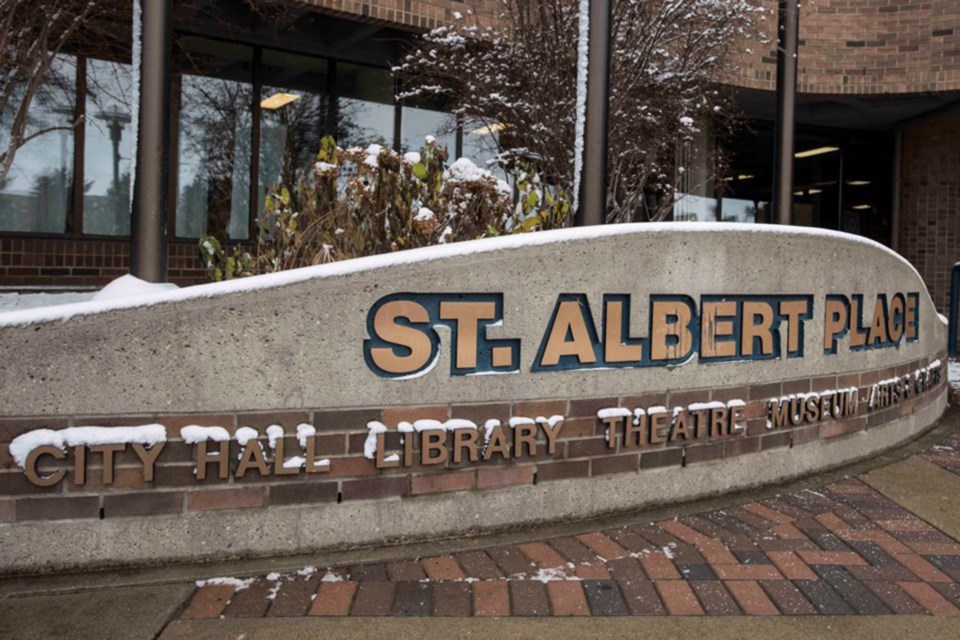The City of St. Albert is exploring strategies to tackle the financial risk of disaster recovery as one part of its response to cumulative impacts of provincial budget decisions.
During a March 21 council meeting, Trevor Duley, St. Albert’s manager of government relations, said the City will absorb an estimated funding reduction of around $5 million each year due to cumulative policy and budgetary changes from the province. Among these changes is a 25-per-cent reduction in infrastructure funding, and a disaster recovery cost the province announced would become a municipal expense as part of its 2021 budget a year ago.
While in previous years, the province would foot the bill for natural disasters, 10 per cent of those costs will now be the responsibility of municipalities.
Coun. Ken MacKay said 10 per cent could actually be “quite significant,” noting Albertan municipalities such as the Regional Municipality of Wood Buffalo have recently been subject to costly disasters.
In 2016, Wood Buffalo faced the Horse River Wildfire, which under current cost-sharing obligations would have seen the municipality cough up $25 million.
Anne Victoor, manager of financial services for St. Albert, said the City is currently having internal discussions about what strategy they will use to plan for potential costly disasters.
“It is definitely a financial risk to the city,” Victoor said, noting one strategy could be setting aside funds in a City reserve.
Diane McMordie, director of financial services, said City administration is currently working on a reserve review as part of the previous year’s corporate business plan, a document that outlines specific actions to realize the strategic plan set by council.
Though she noted the City’s stabilization reserve is designed for unanticipated one-time events, something on the hefty level of disaster recovery has “never been contemplated as part of it,” McMordie said.
Council’s stabilization reserve recently fell to $720,340, a historic low, before council voted to bolster it with an expected $3.9-million annual surplus.
Mayor Cathy Heron said she believes the provincial government has made municipalities liable for disaster damage to “force municipalities to plan their infrastructure to be resilient to floods.”
“It puts the onus on us,” Heron said.
MacKay noted that such a strategy seems to conflict with other provincial budget decisions, such as the removal of the emergency management preparedness program grant, which previously contributed $5,000 to the City.
“Five grand in grant revenue doesn’t sound like a lot, but there’s no synergy,” MacKay said.
Downloading 'nowhere near neutral'
Coun. Sheena Hughes said the downloaded costs to municipalities are “nowhere near neutral,” noting many of the cuts will ultimately fall on the shoulders of taxpayers.
Hughes cited a 1.5-per-cent increase to the education property tax municipalities collect on behalf of the province, and an annual $4-million reduction in funding through the Municipal Sustainability Infrastructure (MSI) grant.
During the council meeting, Stephen Bannerman, an appraiser for the City, calculated the additional tax impact resulting from the loss of MSI funding at an additional $148 annual tax expense for the average household worth $435,000.
Hughes noted that the 2016 wildfire in Fort McMurray could “bankrupt the community” under new cost-sharing requirements, and said St. Albert could see similar effects.
“Even if we’re going to a reserve to handle it … those are now tax dollars that we can’t use for anything else,” Hughes said. “This is actually a really big hit for municipalities, and it will be a big hit for taxpayers in Alberta.”
Heron noted some provincial decisions will have positive impacts, such as $79.5 million the province has pledged to match federal funds for municipal transit systems. Heron recently told The Gazette during an editorial board meeting March 24 that $795,000 of this funding has been specifically allocated to St. Albert.
“We’ve had some wins here and there, and that needs to be acknowledged, but overall, sort of a balanced budget on the backs of municipalities,” Heron said during the March 21 council meeting.




